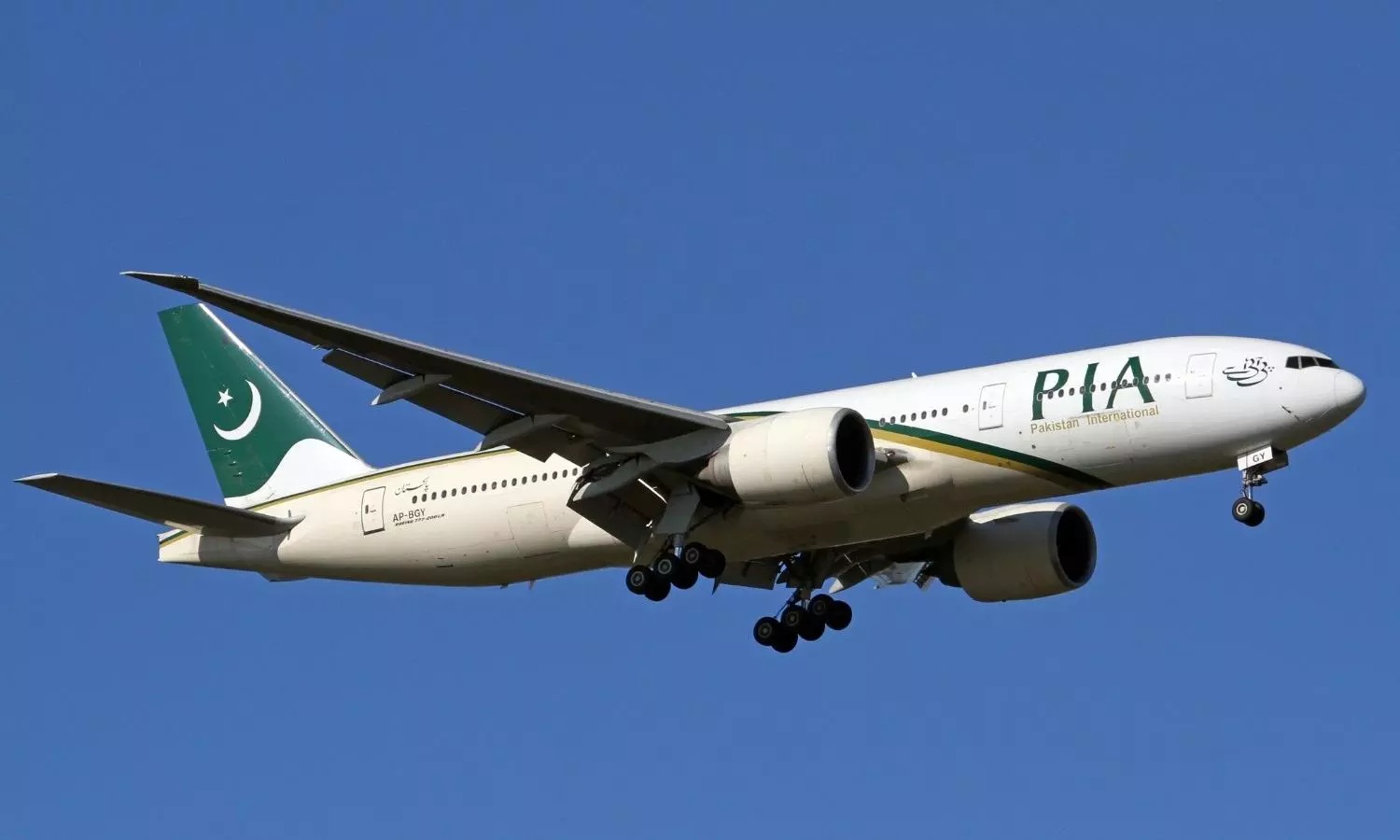The United Kingdom has officially ended its five-year prohibition on Pakistani airlines, allowing them to submit applications to restart flights between Pakistan and the UK.
This development aligns with Pakistan’s intensified efforts to privatize its struggling national carrier, Pakistan International Airlines (PIA).
The UK Air Safety Committee made the decision to lift the ban following notable improvements in aviation safety standards within Pakistan, according to sources close to the UK government.
The British High Commission in Islamabad confirmed the decision on Wednesday, emphasizing that the removal of Pakistan and its carriers from the UK Air Safety List was the result of an “independent and technically driven” safety evaluation process.
In an official statement, the British High Commission clarified that decisions related to listing or delisting countries and airlines are governed by an impartial aviation safety procedure.
Based on these rigorous assessments, the UK has now cleared Pakistan and its carriers to resume operations.
This announcement follows a similar move by the European Union Aviation Safety Agency, which lifted its four-year ban on PIA earlier this year.
Subsequently, the state-owned airline recommenced flights to European destinations in January.
Pakistan’s Prime Minister Shehbaz Sharif hailed the lifting of the ban as a significant achievement for the country.
He highlighted the relief it brings to the Pakistani diaspora in the UK, acknowledging the importance of restoring direct air connectivity for the community.
Meanwhile, Pakistan’s Defence Minister Khawaja Muhammad Asif spoke at a press conference, underscoring that resuming all flight routes to the UK would enhance the value of PIA ahead of its impending privatization.
Asif also revealed plans to revive flights to New York, signaling ambitions to expand the airline’s international reach.
The Defense Minister criticized the previous Aviation Minister, Ghulam Sarwar Khan, blaming him for the ban.
He attributed the UK’s restrictions to what he described as “baseless” allegations and mismanagement during Khan’s tenure, calling the incident a “national-level blunder.”
PIA was banned from UK airspace in June 2020, shortly after a tragic crash in Karachi that resulted in 97 fatalities.
The accident was attributed to errors by both the pilots and air traffic controllers.
Following the crash, investigations uncovered alarming concerns over pilot licensing, with reports suggesting that nearly one-third of PIA’s pilots held dubious or forged licenses.
This led to a comprehensive government inquiry into the airline’s safety and regulatory practices.
While several private Pakistani airlines operate regional and domestic routes, particularly to the Middle East, PIA has traditionally been the sole carrier flying long-haul routes to the UK and Europe.
The airline holds coveted landing slots at Heathrow Airport, which are expected to be reactivated once flights resume.
PIA, employing approximately 7,000 staff members, has faced longstanding criticism for its inefficient management, heavy debt burden, and safety issues.
The airline’s operational challenges include unpaid liabilities and regulatory non-compliance, which have tarnished its reputation and financial stability.
The ban had a significant financial impact on PIA.
The airline previously estimated a revenue loss of around 40 billion Pakistani rupees (roughly $144 million) annually due to restrictions on UK flights.
Routes to London, Manchester, and Birmingham have historically been among PIA’s most lucrative, and the restoration of these routes is expected to improve its revenue streams considerably.
The Pakistani government is actively pursuing the privatization of PIA, seeking to offload the financially distressed carrier.
Recent reforms have reportedly resulted in PIA posting its first operating profit in over two decades, which officials hope will make the airline more attractive to potential investors.
These efforts are part of a broader privatization agenda supported by the International Monetary Fund (IMF).
Last year, a privatization deal collapsed after a prospective buyer offered substantially less than the government’s asking price.
However, progress continues: this month, the government approved four consortiums to bid for a controlling stake, ranging from 51% to full ownership, in PIA.
Final bids are anticipated later in 2025.
Founded in 1955 when the government took over a struggling commercial airline, PIA once enjoyed rapid expansion and success, especially through the 1990s.
Over time, however, operational inefficiencies and financial difficulties have overshadowed the carrier’s legacy.
The removal of the UK ban marks a turning point for PIA, opening doors for renewed international connectivity and improved prospects as the airline undergoes structural transformation.
For the millions of Pakistanis living in Britain and elsewhere, it signals the return of convenient direct flights and enhanced travel options.







